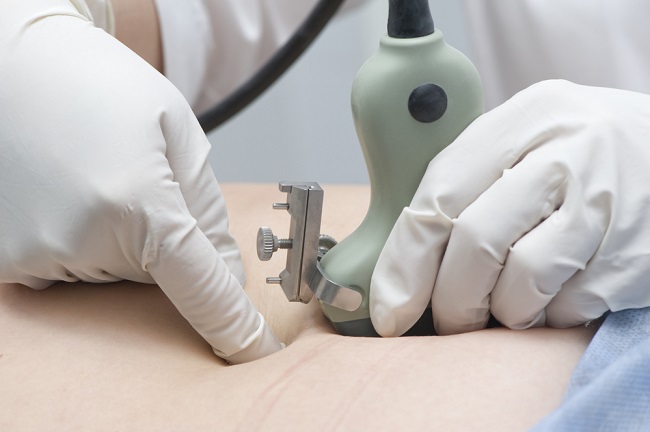Carbimazole is an antithyroid drug used to treat condition hyperthyroidism. This medicine can only purchased with a doctor's prescription and used as directed doctor.
Hyperthyroidism can cause an increase in metabolism. As a result, a number of symptoms will appear, such as weight loss, diarrhea, and excessive sweating. Carbimazole works by decreasing the production of thyroid hormone by the thyroid gland.

In addition to treating hyperthyroidism, carbimazole is also used in patients undergoing radioactive iodine therapy and as a preparation before thyroidectomy (surgical removal of the thyroid gland), either totally or partially.
Carbimazole trademarks: Neo-Mercazole
What is Carbimazole?
| group | Antithyroid drugs |
| Category | Prescription drugs |
| Benefit | Treating hyperthyroidism, preparation before thyroidectomy, therapy before and after radioactive iodine therapy |
| Consumed by | Adults and children |
| Carbimazole for pregnant and lactating women | Category D: There is positive evidence of risks to the human fetus, but the benefits may outweigh the risks, for example in dealing with life-threatening situations. Carbimazole may be absorbed into breast milk. Therefore, this drug should not be used during breastfeeding. |
| Drug form | Tablet |
Warnings Before Taking Carbimazole:
- Do not take carbimazole if you have a history of allergy to this drug.
- Do not use carbimazole if you have a history of liver disease, blood disorders, pancreatitis, and lactose intolerance.
- Temporarily stop taking carbimazole if you are undergoing radioactive iodine therapy.
- Be careful using carbimazole if you suffer from obstruction of the respiratory tract or bone marrow disorders.
- Tell your doctor if you are pregnant, breastfeeding, or planning a pregnancy, before taking carbimazole.
- While taking carbimazole, have regular blood tests to determine your body's response to treatment.
- Stop using carbimazole and see a doctor immediately if you have a sore throat, bruising, bleeding, mouth sores, fever, or not feeling well after using this medicine.
- Stop using carbimazole and see a doctor immediately if you experience an allergic reaction to this drug or an overdose after taking this medicine.
Dosage and Rules of Use Carbimazole
The dose of carbimazole depends on the age of the patient. Here is the explanation:
- Adults: initial dose of 15–60 mg per day, taken 2–3 times. The dose will be reduced gradually after the function of the thyroid gland returns to normal. The maintenance dose is 5–15 mg per day.
- Children aged 3–17 years: the initial dose is 15 mg per day and will be adjusted according to the child's response to the drug.
MethodTaking Carbimazole Correctly
Be sure to read the instructions on the medicine package before starting to use carbimazole. If in doubt, consult a doctor.
Swallow the carbimazole tablet along with a glass of water. Carbimazole can be taken before or after meals.
Try to take carbimazole at the same time each day for effective treatment.
If you forget to take cabimazole, take it as soon as you remember. Patients may double the dose of carbimazole in one drink.
Carbimazole Interactions with Other Drugs
The use of carbimazole together with other drugs can cause drug interactions, including:
- Increased effectiveness of anticoagulant drugs
- Increased risk of theophylline poisoning
- Increased elimination of prednisolone from the body
- Decreased removal of erythromycin from the body
Carbimazole Side Effects and Dangers
Carbimazole side effects usually appear in the first 2 months after starting treatment. These side effects will go away on their own without the need to stop taking carbimazole. Some of the most common side effects are:
- Nauseous
- Hair loss
- Headache
- Muscle and joint pain
- Mild indigestion
In rare cases, carbimazole can also cause more serious side effects. Check with your doctor if you have an allergic reaction to the drug, such as an itchy rash, swollen lips and eyes, or difficulty breathing; and if the following side effects occur:
- Sore throat
- Ulcer
- Fever
- Bruising and bleeding
- Tired easily









